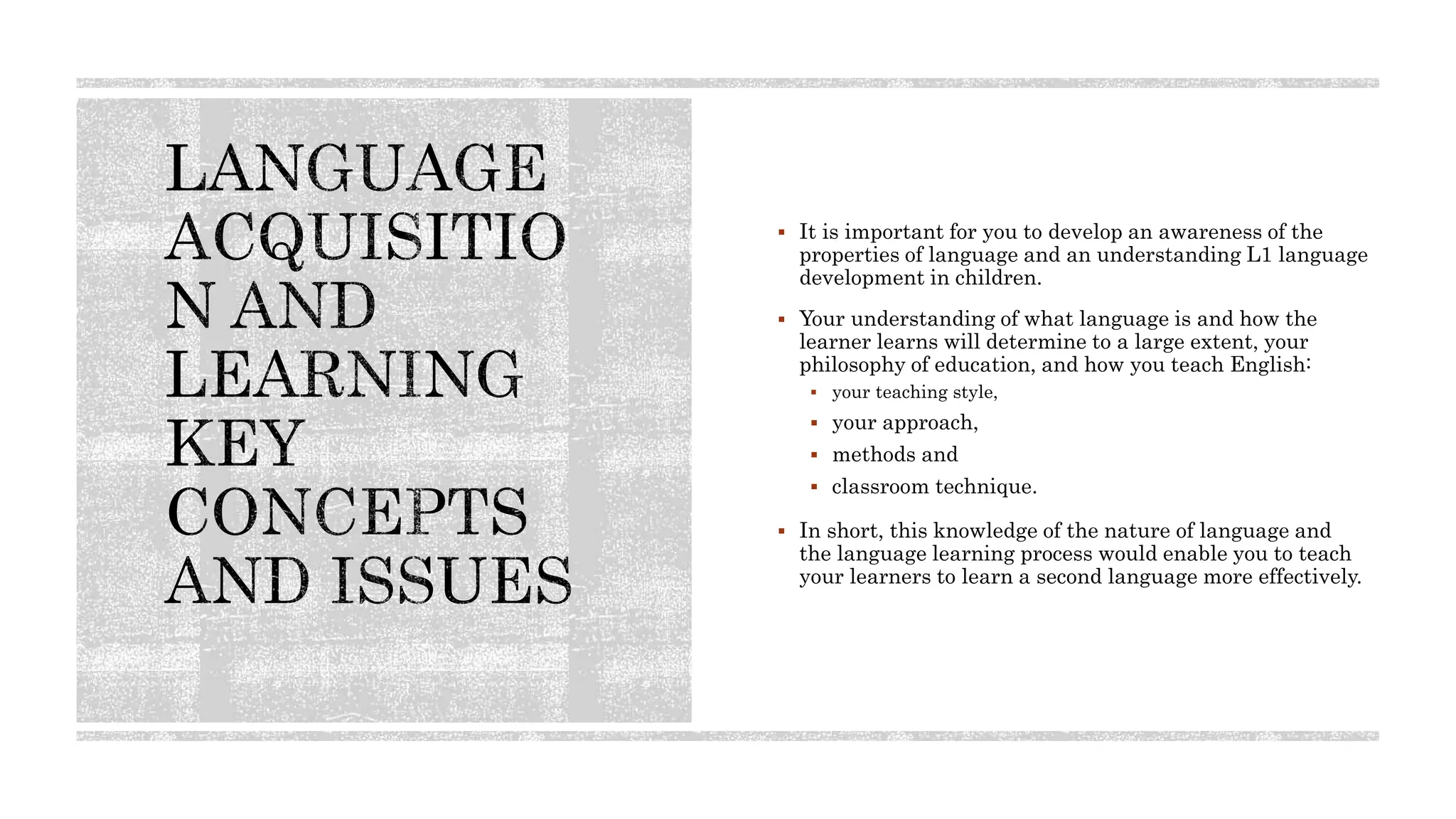The document discusses different definitions and views of language. It provides a composite definition of language as a system of communicating with sounds, symbols and words to express meanings, ideas or thoughts through both oral and written communication as well as body language. The document also outlines three common views of language: the structural view which sees language as a system of elements for transmitting meaning, the communicative view which emphasizes the semantic and communicative dimensions of language over grammar, and the interactional view which sees language as a tool for establishing relationships and performing social interactions between individuals.







